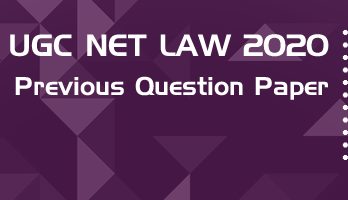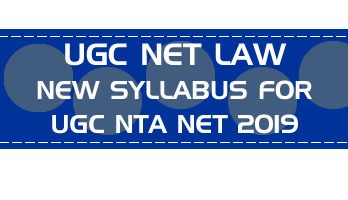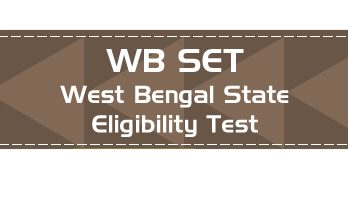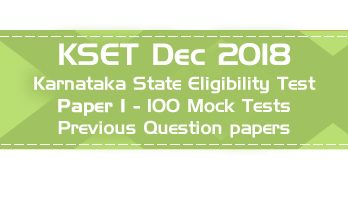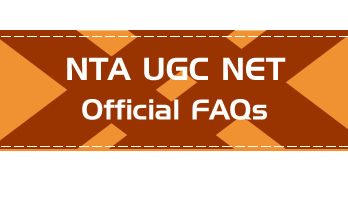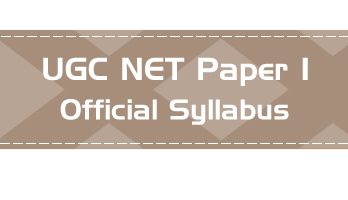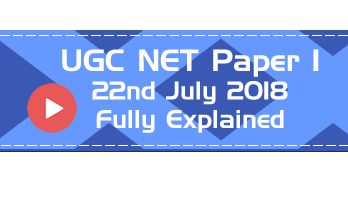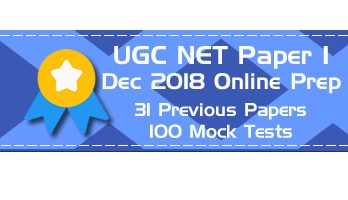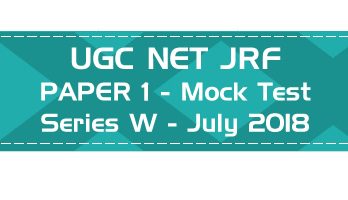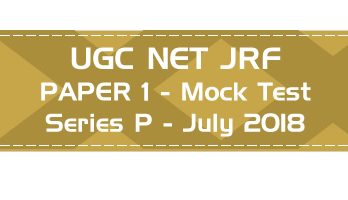- Latest Pattern Mock Tests including comprehension based questions
- Previous Question Papers with Answer Keys - From 2004 till the most recent exam
- 75 Full Length Mock Tests - New Pattern Paper II, with 100 questions each
- 50 Mini Practice Mock tests - with 25 questions each
- Unlimited Practice - New Questions in every attempt of all mocks
- Questions & Answer Choices randomly shuffled in every attempt for better practice
- Database of over 11000+ MCQs covering the entire syllabus
- Unlimited access and practice for one year from the date of purchase
- Accessible 24 x 7 via Smart-Phone browsers and Desktops
Authentic Feedback from previous LawMint users :
I got AIR 21 in CLAT PG. Thank you so much. Your mocks helped me a lot in my preparation 🙂 - Ayushi Jain
I have subscribed to your CLAT PG program and got AIR 36 in this year CLAT PG. I have also secured AIR 54 in AILET PG exam. I would like to thank you. Your mock paper really helps a lot - Shrashank Tripathi
I would like to thank you for the CLAT PG LLM COURSE. Practising mock tests there helped me in getting confidence and hence I was able to get AIR 45 in CLAT PG LLM - Akshay Awasthi
A year back, I relied on the IIT Kharagpur RGSOIPL mock test series by LawMint to prepare for my RGSOIPL entrance test. Few months back, I relied on your UGC NET Law series to prepare for UGC NET. I was the topper of the RGSOIPL entrance, and have cracked JRF in UGC NET. All thanks to LawMint - Anshuman Sahoo
"I got AIR 18 in CLAT PG and General Category rank 28 in AILET PG. I want to thank you for helping me practice well in controlled conditions from any place. It gave me a lot of confidence and I took the tests while travelling too. I also made it to IIT Kharagpur." - Vinodharani
"Lawmint has been of great help to me in securing AIR 25 in AILET PG and AIR 29 in CLAT PG examinations. The subjective and objective approach of the test series kept me up to date with the latest exam pattern." - Bhawna Nanda
"I, Nimmy Saira Zachariah joined you clat test series. I cleared AILET PG with 30th rank. Your test series were of immense help as it gave me clear idea of where my preparations stand thank you once again law mint." - Nimmy S Z
"Hey guys. Where do I start? If I thought that getting AIR 59 in Clat PG was it, then how wrong I was. With Lawmint now I have cracked UGC NET as well." - Joyanta Chakraborty
Note : Answer Keys to all Previous Question Papers published on LawMint are available to registered users of LawMint.com Online Practice Packs.
Check out all the HECI NTA NET or UGC CBSE NET Paper 1 previous question papers here : Previous Papers & Mock Tests
Note : UGC has rolled out a revised syllabus for both Papers 1 & 2 from Jan 2019 onward.
1. Video-Conferencing can be classified as one of the following types of communication :
– Visual one way
– Audio-Visual one way
– Audio-Visual two way
– Visual two way
2. MC National University of Journalism and Communication is located at
– Lucknow
– Bhopal
– Chennai
– Mumbai
3. All India Radio (A.I.R.) for broadcasting was named in the year
– 1926
– 1936
– 1946
– 1956
4. In India for broadcasting TV programmes which system is followed ?
– NTCS
– PAL
– NTSE
– SECAM
5. The term ‘DAVP’ stands for
– Directorate of Advertising & Vocal Publicity
– Division of Audio-Visual Publicity
– Department of Audio-Visual Publicity
– Directorate of Advertising & Visual Publicity
6. The term “TRP” is associated with TV shows stands for
– Total Rating Points
– Time Rating Points
– Thematic Rating Points
– Television Rating Points
7. Which is the number that comes next in the following sequence? 2, 6, 12, 20, 30, 42, 56, _____
– 60
– 64
– 72
– 70
8. Find the next letter for the series YVSP_
– N
– M
– O
– L
9. Given that in a code language, ‘645’ means ‘day is warm’; ’42’ means ‘warm spring’ and ‘634’ means ‘spring is sunny’; which digit represents ‘sunny’ ?
– 3
– 2
– 4
– 5
10. The basis of the following classification is : ‘first President of India’ ‘author of Godan’ ‘books in my library’, ‘blue things’ and ‘students who work hard’
– Common names
– Proper names
– Descriptive phrases
– Indefinite description
11. In the expression ‘Nothing is larger than itself’ the relation ‘is larger than’ is
– antisymmetric
– asymmetrical
– intransitive
– irreflexive
12. Assertion (A) : There are more laws on the books today than ever before, and more crimes being committed than ever before.
Reason (R) : Because to reduce crime we must eliminate the laws.
– (A) is true, (R) is doubtful and (R) is not the correct explanation of (A).
– (A) is false, (R) is true and (R) is the correct explanation of (A).
– (A) is doubtful, (R) is doubtful and (R) is not the correct explanation of (A).
– (A) is doubtful, (R) is true and (R) is not the correct explanation of (A).
13. If the proposition “All men are not mortal” is true then which of the following inferences is correct ?
1. “All men are mortal” is true.
2. “Some men are mortal” is false.
3. “No men are mortal” is doubtful.
4. “All men are mortal” is false.
– 1, 2 and 3
– 2, 3 and 4
– 1, 3 and 4
– 1 and 3
14. Determine the nature of the following definition : “Abortion” means the ruthless murdering of innocent beings.
– Lexical
– Persuasive
– Stipulative
– Theoretical
15. Which one of the following is not an argument ?
– Devadutt does not eat in the day so he must be eating at night.
– If Devadutt is growing fat and if he does not eat during the day, he will be eating at night.
– Devadutt eats in the night so he does not eat during the day.
– Since Devadutt does not eat in the day, he must be eating in the night.
16. Venn diagram is a kind of diagram to
– represent and assess the validity of elementary inferences of syllogistic form.
– represent but not assess the validity of elementary inferences of syllogistic form.
– represent and assess the truth of elementary inferences of syllogistic form.
– assess but not represent the truth of elementary inferences of syllogistic form
17. Reasoning by analogy leads to
– certainty
– definite conclusion
– predictive conjecture
– surety
18. Which of the following statements are false ?
1. Inductive arguments always proceed from the particular to the general.
2. A cogent argument must be inductively strong.
3. A valid argument may have a false premise and a false conclusion.
4. An argument may legitimately be spoken of as ‘true’ or ‘false’.
– 2, 3 and 4
– 1 and 3
– 2 and 4
– 1 and 2
19. Six persons A, B, C, D, E and F are standing in a circle. B is between F and C, A is between E and D, F is to the left of D. Who is between A and F ?
– B
– C
– D
– E
20. The price of petrol increases by 25%. By what percentage must a customer reduce the consumption so that the earlier bill on the petrol does not alter ?
– 20%
– 25%
– 30%
– 33.33%
21. If Ram knows that y is an integer greater than 2 and less than 7 and Hari knows that y is an integer greater than 5 and less than 10, then they may correctly conclude that
– y can be exactly determined
– y may be either of two values
– y may be any of three values
– there is no value of y satisfying these conditions
22. Four pipes can fill a reservoir in 15, 20, 30 and 60 hours respectively. The first one was opened at 6 AM, second at 7 AM, third at 8 AM and the fourth at 9 AM. When will the reservoir be filled ?
– 11 AM
– 12 Noon
– 1 PM
– 1:30 PM
23. The total electricity generation in a country is 97 GW. The contribution of various energy sources is indicated in percentage terms in the Pie Chart given below
What is the contribution of wind and solar power in absolute terms in the electricity generation ?
– 6.79 GW
– 19.4 GW
– 9.7 GW
– 29.1 GW
24. The total electricity generation in a country is 97 GW. The contribution of various energy sources is indicated in percentage terms in the Pie Chart given below
What is the contribution of renewable energy sources in absolute terms in the electricity generation ?
– 29.1 GW
– 26.19 GW
– 67.9 GW
– 97 GW
25. TCP/IP is necessary if one is to connect to the
– Phone lines
– LAN
– Internet
– a Server
26. Each character on the keyboard of computer has an ASCII value which stands for
– American Stock Code for Information Interchange
– American Standard Code for Information Interchange
– African Standard Code for Information Interchange
– Adaptable Standard Code for Information Change
27. Which of the following is not a programming language ?
– Pascal
– Microsoft Office
– Java
– C++
28. Minimum number of bits required to store any 3 digit decimal number is equal to
– 3
– 5
– 8
– 10
29. Internet explorer is a type of
– Operating System
– Compiler
– Browser
– IP address
30. POP3 and IMAP are e-mail accounts in which
– One automatically gets one’s mail everyday
– One has to be connected to the server to read or write one’s mail
– One only has to be connected to the server to send and receive email
– One does not need any telephone lines
31. Irritation in eyes is caused by the pollutant
– Sulphur di-oxide
– Ozone
– PAN
– Nitrous oxide
32. Which is the source of chlorofluorocarbons ?
– Thermal power plants
– Automobiles
– Refrigeration and Airconditioning
– Fertilizers
33. Which of the following is not a renewable natural resource ?
– Clean air
– Fertile soil
– Fresh water
– Salt
34. Which of the following parameters is not used as a pollution indicator in water ?
– Total dissolved solids
– Coliform count
– Dissolved oxygen
– Density
35. S and P waves are associated with
– floods
– wind energy
– earthquakes
– tidal energy
36. Match Lists I and II and select the correct answer from the codes given below :
List – I
(i) Ozone hole
(ii) Greenhouse effect
(iii) Natural hazards
(iv) Sustainable development
List – II
(a) Tsunami
(b) UV radiations
(c) Methane
(d) Eco-centrism
Choose the answer that corresponds to the sequence (i) (ii) (iii) (iv)
– (b) (c) (a) (d)
– (c) (b) (a) (d)
– (d) (c) (a) (b)
– (d) (b) (c) (a)
37. Indian Institute of Advanced Study is located at
– Dharmshala
– Shimla
– Solan
– Chandigarh
38. Indicate the number of Regional Offices of National Council of Teacher Education.
– 04
– 05
– 06
– 08
39. Which of the following rights was considered the “Heart and Soul” of the Indian Constitution by Dr. B.R. Ambedkar ?
– Freedom of Speech
– Right to Equality
– Right to Freedom of Religion
– Right to Constitutional Remedies
40. Who among the following created the office of the District Collector in India ?
– Lord Cornwallis
– Warren Hastings
– The Royal Commission on Decentralisation
– Sir Charles Metcalfe
41. The Fundamental Duties of a citizen include
1. Respect for the Constitution, the National Flag and the National Anthem
2. To develop the scientific temper.
3. Respect for the Government.
4. To protect Wildlife.
– 1, 2 and 3
– 1, 2 and 4
– 2, 3 and 4
– 1, 3, 4 and 2
42. The President of India takes oath
– to uphold the sovereignty and integrity of India.
– to bear true faith and allegiance to the Constitution of India.
– to uphold the Constitution and Laws of the country.
– to preserve, protect and defend the Constitution and the law of the country.
43. If you get an opportunity to teach a visually challenged student along with normal students, what type of treatment would you like to give him in the class ?
– Not giving extra attention because majority may suffer.
– Take care of him sympathetically in the class- room.
– You will think that blindness is his destiny and hence you cannot do anything.
– Arrange a seat in the front row and try to teach at a pace convenient to him.
44. Which of the following is not a characteristic of a good achievement test ?
– Reliability
– Objectivity
– Ambiguity
– Validity
45. Which of the following does not belong to a projected aid ?
– Overhead projector
– Blackboard
– Epidiascope
– Slide projector
46. For a teacher, which of the following methods would be correct for writing on the blackboard ?
– Writing fast and as clearly as possible.
– Writing the matter first and then asking students to read it.
– Asking a question to students and then writing the answer as stated by them.
– Writing the important points as clearly as possible.
47. A teacher can be successful if he/she
– helps students in becoming better citizens
– imparts subject knowledge to students
– prepares students to pass the examination
– presents the subject matter in a well organized manner
48. Dynamic approach to teaching means
– Teaching should be forceful and effective
– Teachers should be energetic and dynamic
– The topics of teaching should not be static, but dynamic
– The students should be required to learn through activities
49. The research that aims at immediate application is
– Action Research
– Empirical Research
– Conceptual Research
– Fundamental Research
50. When two or more successive footnotes refer to the same work which one of the following expressions is used ?
– ibid
– et.al
– op.cit :
– loc.cit.
51. Nine year olds are taller than seven year olds. This is an example of a reference drawn from
– Vertical study
– Cross-sectional study
– Time series study
– Experimental study
52. Conferences are meant for
– Multiple target groups
– Group discussions
– Show-casing new Research
– All of the given choices
53. Ex Post Facto research means
– The research is carried out after the incident
– The research is carried out prior to the incident
– The research is carried out along with the happening of an incident.
– The research is carried out keeping in mind the possibilities of an incident.
54. Research ethics do not include
– Honesty
– Subjectivity
– Integrity
– Objectivity
55. Read the following passage carefully and answer the question below :James Madison said, “A people who mean to be their own governors must arm themselves with power that knowledge gives.” In India, the Official Secrets Act, 1923 was a convenient smokescreen to deny members of the public access to information. Public functioning has traditionally been shrouded in secrecy. But in a democracy in which people govern themselves, it is necessary to have more openness.
In the maturing of our democracy, right to information is a major step forward; it enables citizens to participate fully in the decision-making process that affects their lives so profoundly. It is in this context that the address of the Prime Minister in the Lok Sabha is significant. He said, “I would only like to see that everyone, particularly our civil servants, should see the Bill in a positive spirit; not as a draconian law for paralyzing Government, but as an instrument for improving Government-Citizen interface resulting in a friendly, caring and effective Government functioning for the good of our People.” He further said, “This is an innovative Bill, where there will be scope to review its functioning as we gain experience. Therefore, this is a piece of legislation, whose working will be kept under constant reviews.”
The Commission, in its Report, has dealt with the application of the Right to Information in Executive, Legislature and Judiciary. The judiciary could be a pioneer in implementing the Act in letter and spirit because much of the work that the Judiciary does is open to public scrutiny, Government of India has sanctioned an e-governance project in the Judiciary for about 700 crores which would bring about systematic classification, standardization and categorization of records.
This would help the judiciary to fulfil its mandate under the Act. Similar capacity building would be required in all other public authorities. The transformation from nontransparency to transparency and public accountability is the responsibility of all three organs of State.
A person gets power
– by acquiring knowledge
– from the Official Secrets Act, 1923
– through openings
– by denying public information
56. Read the following passage carefully and answer the question below :James Madison said, “A people who mean to be their own governors must arm themselves with power that knowledge gives.” In India, the Official Secrets Act, 1923 was a convenient smokescreen to deny members of the public access to information. Public functioning has traditionally been shrouded in secrecy. But in a democracy in which people govern themselves, it is necessary to have more openness.
In the maturing of our democracy, right to information is a major step forward; it enables citizens to participate fully in the decision-making process that affects their lives so profoundly. It is in this context that the address of the Prime Minister in the Lok Sabha is significant. He said, “I would only like to see that everyone, particularly our civil servants, should see the Bill in a positive spirit; not as a draconian law for paralyzing Government, but as an instrument for improving Government-Citizen interface resulting in a friendly, caring and effective Government functioning for the good of our People.” He further said, “This is an innovative Bill, where there will be scope to review its functioning as we gain experience. Therefore, this is a piece of legislation, whose working will be kept under constant reviews.”
The Commission, in its Report, has dealt with the application of the Right to Information in Executive, Legislature and Judiciary. The judiciary could be a pioneer in implementing the Act in letter and spirit because much of the work that the Judiciary does is open to public scrutiny, Government of India has sanctioned an e-governance project in the Judiciary for about 700 crores which would bring about systematic classification, standardization and categorization of records.
This would help the judiciary to fulfil its mandate under the Act. Similar capacity building would be required in all other public authorities. The transformation from nontransparency to transparency and public accountability is the responsibility of all three organs of State.
Right to Information is a major step forward to
– enable citizens to participate fully in the decision making process
– to make the people aware of the Act
– to gain knowledge of administration
– to make the people Government friendly
57. Read the following passage carefully and answer the question below :James Madison said, “A people who mean to be their own governors must arm themselves with power that knowledge gives.” In India, the Official Secrets Act, 1923 was a convenient smokescreen to deny members of the public access to information. Public functioning has traditionally been shrouded in secrecy. But in a democracy in which people govern themselves, it is necessary to have more openness.
In the maturing of our democracy, right to information is a major step forward; it enables citizens to participate fully in the decision-making process that affects their lives so profoundly. It is in this context that the address of the Prime Minister in the Lok Sabha is significant. He said, “I would only like to see that everyone, particularly our civil servants, should see the Bill in a positive spirit; not as a draconian law for paralyzing Government, but as an instrument for improving Government-Citizen interface resulting in a friendly, caring and effective Government functioning for the good of our People.” He further said, “This is an innovative Bill, where there will be scope to review its functioning as we gain experience. Therefore, this is a piece of legislation, whose working will be kept under constant reviews.”
The Commission, in its Report, has dealt with the application of the Right to Information in Executive, Legislature and Judiciary. The judiciary could be a pioneer in implementing the Act in letter and spirit because much of the work that the Judiciary does is open to public scrutiny, Government of India has sanctioned an e-governance project in the Judiciary for about 700 crores which would bring about systematic classification, standardization and categorization of records.
This would help the judiciary to fulfil its mandate under the Act. Similar capacity building would be required in all other public authorities. The transformation from nontransparency to transparency and public accountability is the responsibility of all three organs of State.
The Prime Minister considered the Bill
– to provide power to the civil servants
– as an instrument for improving Government-citizen interface resulting in a friendly, caring and effective Government
– a draconian law against the officials
– to check the harassment of the people
58. Read the following passage carefully and answer the question below :James Madison said, “A people who mean to be their own governors must arm themselves with power that knowledge gives.” In India, the Official Secrets Act, 1923 was a convenient smokescreen to deny members of the public access to information. Public functioning has traditionally been shrouded in secrecy. But in a democracy in which people govern themselves, it is necessary to have more openness.
In the maturing of our democracy, right to information is a major step forward; it enables citizens to participate fully in the decision-making process that affects their lives so profoundly. It is in this context that the address of the Prime Minister in the Lok Sabha is significant. He said, “I would only like to see that everyone, particularly our civil servants, should see the Bill in a positive spirit; not as a draconian law for paralyzing Government, but as an instrument for improving Government-Citizen interface resulting in a friendly, caring and effective Government functioning for the good of our People.” He further said, “This is an innovative Bill, where there will be scope to review its functioning as we gain experience. Therefore, this is a piece of legislation, whose working will be kept under constant reviews.”
The Commission, in its Report, has dealt with the application of the Right to Information in Executive, Legislature and Judiciary. The judiciary could be a pioneer in implementing the Act in letter and spirit because much of the work that the Judiciary does is open to public scrutiny, Government of India has sanctioned an e-governance project in the Judiciary for about 700 crores which would bring about systematic classification, standardization and categorization of records.
This would help the judiciary to fulfil its mandate under the Act. Similar capacity building would be required in all other public authorities. The transformation from nontransparency to transparency and public accountability is the responsibility of all three organs of State.
The Commission made the Bill effective by
– extending power to the executive authorities
– combining the executive and legislative power
– recognizing Judiciary a pioneer in implementing the act in letter and spirit
– educating the people before its implementation
59. Read the following passage carefully and answer the question below :James Madison said, “A people who mean to be their own governors must arm themselves with power that knowledge gives.” In India, the Official Secrets Act, 1923 was a convenient smokescreen to deny members of the public access to information. Public functioning has traditionally been shrouded in secrecy. But in a democracy in which people govern themselves, it is necessary to have more openness.
In the maturing of our democracy, right to information is a major step forward; it enables citizens to participate fully in the decision-making process that affects their lives so profoundly. It is in this context that the address of the Prime Minister in the Lok Sabha is significant. He said, “I would only like to see that everyone, particularly our civil servants, should see the Bill in a positive spirit; not as a draconian law for paralyzing Government, but as an instrument for improving Government-Citizen interface resulting in a friendly, caring and effective Government functioning for the good of our People.” He further said, “This is an innovative Bill, where there will be scope to review its functioning as we gain experience. Therefore, this is a piece of legislation, whose working will be kept under constant reviews.”
The Commission, in its Report, has dealt with the application of the Right to Information in Executive, Legislature and Judiciary. The judiciary could be a pioneer in implementing the Act in letter and spirit because much of the work that the Judiciary does is open to public scrutiny, Government of India has sanctioned an e-governance project in the Judiciary for about 700 crores which would bring about systematic classification, standardization and categorization of records.
This would help the judiciary to fulfil its mandate under the Act. Similar capacity building would be required in all other public authorities. The transformation from nontransparency to transparency and public accountability is the responsibility of all three organs of State.
The Prime Minister considered the Bill innovative and hoped that
– It could be reviewed based on the experience gained on its functioning.
– The civil servants would see the Bill in a positive spirit.
– It would not be considered as a draconian law for paralyzing Government
– All of the given choices
60. Read the following passage carefully and answer the question below :James Madison said, “A people who mean to be their own governors must arm themselves with power that knowledge gives.” In India, the Official Secrets Act, 1923 was a convenient smokescreen to deny members of the public access to information. Public functioning has traditionally been shrouded in secrecy. But in a democracy in which people govern themselves, it is necessary to have more openness.
In the maturing of our democracy, right to information is a major step forward; it enables citizens to participate fully in the decision-making process that affects their lives so profoundly. It is in this context that the address of the Prime Minister in the Lok Sabha is significant. He said, “I would only like to see that everyone, particularly our civil servants, should see the Bill in a positive spirit; not as a draconian law for paralyzing Government, but as an instrument for improving Government-Citizen interface resulting in a friendly, caring and effective Government functioning for the good of our People.” He further said, “This is an innovative Bill, where there will be scope to review its functioning as we gain experience. Therefore, this is a piece of legislation, whose working will be kept under constant reviews.”
The Commission, in its Report, has dealt with the application of the Right to Information in Executive, Legislature and Judiciary. The judiciary could be a pioneer in implementing the Act in letter and spirit because much of the work that the Judiciary does is open to public scrutiny, Government of India has sanctioned an e-governance project in the Judiciary for about 700 crores which would bring about systematic classification, standardization and categorization of records.
This would help the judiciary to fulfil its mandate under the Act. Similar capacity building would be required in all other public authorities. The transformation from nontransparency to transparency and public accountability is the responsibility of all three organs of State.
The transparency and public accountability is the responsibility of three organs of the State. These three organs are
– Lok Sabha, Rajya Sabha and Judiciary
– Lok Sabha, Rajya Sabha and Executive
– Judiciary, Legislature and the Commission
– Legislature, Executive and Judiciary
- Latest Pattern Mock Tests including comprehension based questions
- Previous Question Papers with Answer Keys - From 2004 till the most recent exam
- 75 Full Length Mock Tests - New Pattern Paper II, with 100 questions each
- 50 Mini Practice Mock tests - with 25 questions each
- Unlimited Practice - New Questions in every attempt of all mocks
- Questions & Answer Choices randomly shuffled in every attempt for better practice
- Database of over 11000+ MCQs covering the entire syllabus
- Unlimited access and practice for one year from the date of purchase
- Accessible 24 x 7 via Smart-Phone browsers and Desktops
Authentic Feedback from previous LawMint users :
I got AIR 21 in CLAT PG. Thank you so much. Your mocks helped me a lot in my preparation 🙂 - Ayushi Jain
I have subscribed to your CLAT PG program and got AIR 36 in this year CLAT PG. I have also secured AIR 54 in AILET PG exam. I would like to thank you. Your mock paper really helps a lot - Shrashank Tripathi
I would like to thank you for the CLAT PG LLM COURSE. Practising mock tests there helped me in getting confidence and hence I was able to get AIR 45 in CLAT PG LLM - Akshay Awasthi
A year back, I relied on the IIT Kharagpur RGSOIPL mock test series by LawMint to prepare for my RGSOIPL entrance test. Few months back, I relied on your UGC NET Law series to prepare for UGC NET. I was the topper of the RGSOIPL entrance, and have cracked JRF in UGC NET. All thanks to LawMint - Anshuman Sahoo
"I got AIR 18 in CLAT PG and General Category rank 28 in AILET PG. I want to thank you for helping me practice well in controlled conditions from any place. It gave me a lot of confidence and I took the tests while travelling too. I also made it to IIT Kharagpur." - Vinodharani
"Lawmint has been of great help to me in securing AIR 25 in AILET PG and AIR 29 in CLAT PG examinations. The subjective and objective approach of the test series kept me up to date with the latest exam pattern." - Bhawna Nanda
"I, Nimmy Saira Zachariah joined you clat test series. I cleared AILET PG with 30th rank. Your test series were of immense help as it gave me clear idea of where my preparations stand thank you once again law mint." - Nimmy S Z
"Hey guys. Where do I start? If I thought that getting AIR 59 in Clat PG was it, then how wrong I was. With Lawmint now I have cracked UGC NET as well." - Joyanta Chakraborty
Note : Answer Keys to all Previous Question Papers published on LawMint are available to registered users of our Online Practice Packs.
Check out all the HECI NTA NET or UGC CBSE NET Paper 1 previous question papers here : Previous Papers & Mock Tests


